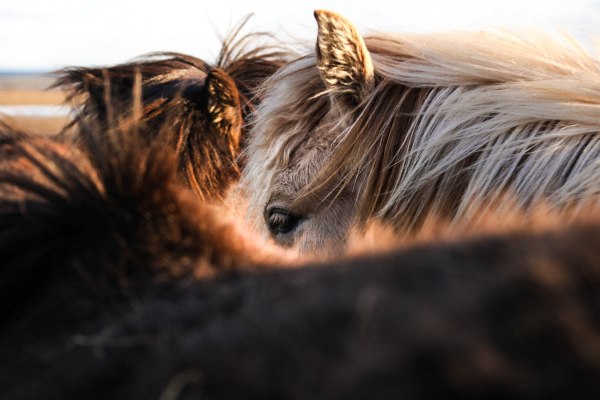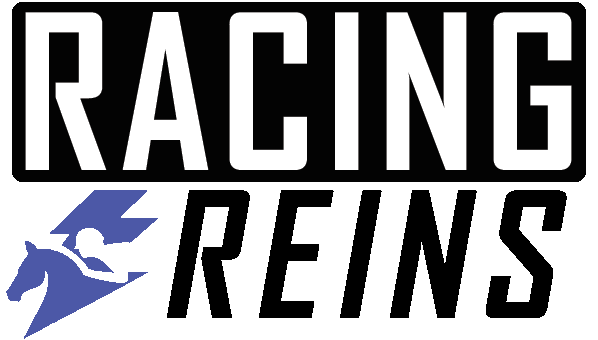
National Museum of Racing has elected seven new members to its Hall of Fame, headlined by Pennsylvania-bred Smarty Jones, who appeared on the ballot for the first time. The 2025 class also includes Kentucky-breds Decathlon and Hermis, trainer George H. Conway, and industry figures Edward L. Bowen, Arthur B. Hancock III, and Richard Ten Broeck.
Smarty Jones was the only contemporary candidate to receive majority approval, appearing on ballots from 90.2% of the 157 participating voters. Candidates in the Historic Review and Pillars of the Turf categories required 75% committee approval for election.
The induction ceremony will take place Friday, August 1, at the Fasig-Tipton sales pavilion in Saratoga Springs at 10:30 a.m. Tom Durkin will serve as master of ceremonies for the event, which is free and open to the public. The ceremony will stream live on the Museum’s website.
Bred by Someday Farm, Smarty Jones (Elusive Quality–I’ll Get Along, by Smile) compiled an impressive 8-1-0 record from nine career starts between 2003 and 2004. His victories included the Kentucky Derby and Preakness Stakes during his three-year-old campaign, earning him the Eclipse Award for Champion 3-Year-Old Male. Roy and Pat Chapman’s homebred was trained by John C. Servis and ridden exclusively by Stewart Elliott.
George H. Conway (1873-1939) is best remembered for training Hall of Famer War Admiral to the 1937 Triple Crown sweep. Under Conway’s guidance, War Admiral achieved a 21-3-1 record from 26 starts with earnings of $273,240 between 1936 and 1938. The Oceanport, N.J. native also conditioned Hall of Fame member Crusader and standouts Speed Boat, War Glory, and War Heros.
Edward L. Bowen (1942-2025) contributed to racing for more than six decades as a journalist, historian, and industry leader. The West Virginia native served 24 years as president of the Grayson-Jockey Club Research Foundation, won an Eclipse Award for journalism, authored 22 books on horse racing, and chaired the National Museum of Racing’s Hall of Fame Nominating Committee from 1987 through 2024. Bowen also served as editor-in-chief of The BloodHorse.
Arthur B. Hancock III established Stone Farm near Paris, Ky., in 1970, continuing his family’s distinguished racing legacy. His grandfather founded Claiborne Farm, while his father expanded it into one of the industry’s most significant breeding operations.
Hancock bred and raced 1982 Kentucky Derby winner Gato Del Sol in partnership with Leone J. Peters. The pair also bred Risen Star, winner of the 1988 Preakness Stakes and Belmont Stakes. Through H-G-W Partners, Hancock campaigned Hall of Fame member and 1989 Horse of the Year Sunday Silence, whose victories included the Kentucky Derby, Preakness, and Breeders’ Cup Classic. Hancock also co-bred 2000 Kentucky Derby winner Fusaichi Pegasus.
Richard Ten Broeck (1811-1892) was a pioneering 19th-century racing figure who succeeded as an owner, breeder, and track operator. The Albany, N.Y. native managed the Bingaman and Bascombe courses before purchasing Metairie Race Course in New Orleans for $27,000 in 1851. Under his leadership, Metairie became America’s premier track in the decade before the Civil War.
Ten Broeck made history as the first American owner to win a significant race in England, establishing a three-decade presence there with horses including Lecomte, Prioress, and Starke.
Decathlon (Olympia–Dog Blessed, by Bull Dog) raced from 1955 through 1957 with a record of 25-8-1 from 42 starts and earnings of $269,530. Bred in Kentucky by the Nuckols Brothers and purchased at Keeneland for $15,500 by Robert J. Dienst, the bay colt was trained by Rollie Shepp and campaigned under the River Divide Farm banner.
The two-time Champion Sprint Horse (1956, 1957) won 18 stakes races during his career. Decathlon set track records at Monmouth Park, Suffolk Downs, and Tropical Park, while matching the world record for 5 1/2 furlongs (1:03 1/5) at Tropical in the 1956 Inaugural Handicap.
Hermis (Hermence–Katy of the West, by Spendrift) compiled a record of 28-8-6 from 55 starts with earnings of $84,155 between 1901 and 1905. Bred in Kentucky by Hiram Berry, the chestnut was trained by Charles Hughes, Jack McCormick, and Alexander Shields for various owners including H. M. Ziegler, L. V. Bell, and Edward R. Thomas, who paid a record $60,000 for the horse.
The BloodHorse‘s retrospective publication “The Great Ones” recognized Hermis as Horse of the Year in 1902 and 1903, Champion 3-Year-Old Male in 1902, and Champion Older Male in 1903 and 1904.
